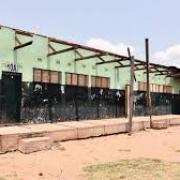South Africa
-
Communities Should Join Hands To Safeguard Schools-Western Cape MEC
- By solomon2day
- On 18/01/2019
- In News
 Western Cape Member of Education Council in South Africa,Debbie Schaffer has called on parents and guardians to assist in the safeguarding of facilities and property in Schools in the region.Schaffer made this call while inspecting the damage done to 27 schools."While we can and do try to safeguard our schools with additional security measures, we cannot win the fight against school burglary and vandalism without community support. A school is a community asset. Everyone should help protect schools, as it is fundamental to the future of our children. The damages include theft, burglary and vandalism. Three-quarters of the estimates had been calculated. A feeding kitchen had been targeted, where over 100kg of food was stolen. It is simply deplorable to steal food out of the mouths of our learners."
Western Cape Member of Education Council in South Africa,Debbie Schaffer has called on parents and guardians to assist in the safeguarding of facilities and property in Schools in the region.Schaffer made this call while inspecting the damage done to 27 schools."While we can and do try to safeguard our schools with additional security measures, we cannot win the fight against school burglary and vandalism without community support. A school is a community asset. Everyone should help protect schools, as it is fundamental to the future of our children. The damages include theft, burglary and vandalism. Three-quarters of the estimates had been calculated. A feeding kitchen had been targeted, where over 100kg of food was stolen. It is simply deplorable to steal food out of the mouths of our learners.""It is devastating that people are prepared to do this to schools, when we know the desperate needs in education and the inadequacy of our budget to cope with them. We should be using these funds to build new schools, improve existing schools, appoint additional teachers and generally improve opportunities for children'', Schaffer stated
-
Civil Servant in South Africa Jailed for Theft of Land and Livestock
- By solomon2day
- On 11/09/2018
- In News
A Durban Commercial Crime Court has sentenced a civil servant to 10 years in prison for stealing a fram and livestock that had been earlier awarded to a family.
The Shabalala family were still waiting for government to transfer ownership of the Ladysmith farm, where they had lived all their lives, 10 years after it had been awarded. The government is also supposed to provide assistance, in line with the country's land reform policy.
The Durban Commercial Crimes Court Magistrate Judy Naidoo in reference to the lack of progress towards transferring ownership to the Shabalalas said "It must be placed on record that this is not even in the pipeline,"
"The Shabalalas were totally unsophisticated and had the wool pulled over their eyes when the accused appropriated the farm for himself and his family. The Shabalalas accepted this because they knew no better of their rights and because he was an official with land affairs."
"The head of the family, Wilson Shabalala, is very old and had to travel all the way from Ladysmith to testify. He was very emotional and even cried when testifying. In his twilight age, he needs to have some security and reassurance that he and his family would be given what was rightfully theirs - land they have lived on since birth."
She said that in considering an appropriate sentence, the court also needed to take into account the exorbitant costs incurred by the state in rectifying the wrongs of government officials in cases like this.
"The Shabalalas are still left in in limbo regarding their ownership of the property. They also deserved the assistance that had been promised them''"As we read about the government's new policy of expropriation of land without compensation, one sincerely hopes that the policies and procedures implemented will be more streamlined and effected in the interests of the community and not left to greedy individuals who only seek to uplift themselves at the expense of more needy people," the Magistrate concluded.
The civil servant, Masoka was found guilty earlier this year of fraud and two counts of theft amounting to R5.3 million.
The court heard that in working for the department as a project manager in northern KwaZulu-Natal, Masoka corruptly took over ownership and control of a commercially viable farm, Kuickvlei, near Ladysmith, where he and his family lived.
In compliance with the land claim settlement, the Shabalala family ought to have become the rightful owners of the commercially viable farm, and in addition eligible for grants and assistance in line with government's objective to support emerging farmers.
But this was not the case, as Masoka illegally took control of the farm and relocated the cattle and sheep as if they were his own. He did this by creating a trust deed that omitted the Shabalalas as the new owners.
The accused also tampered with a number of documents that enabled him and his family to move into the main homestead of Kuickvlei farm and benefit from agricultural development grants for livestock purchase, farm implements and livestock handling facilities. Masoka ended up defrauding the state and the Shabalalas of more than R5.3 million.
